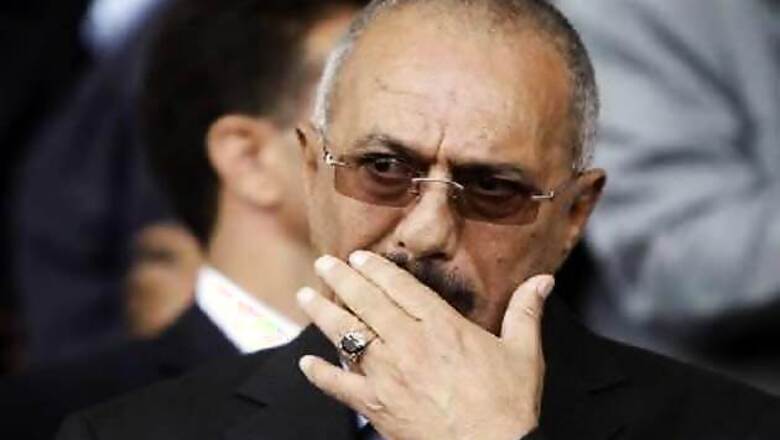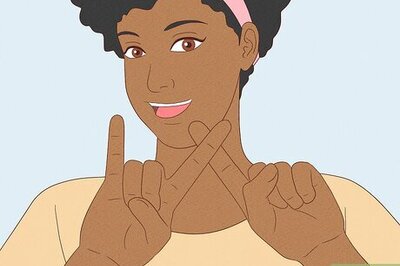
views
Sanaa: Outgoing president Ali Abdullah Saleh apologised for "any shortcoming" in his 33-year rule before leaving Yemen for the United States on Sunday, paving the way for a transfer of power after a year of unrest.
"God willing, I will leave for (medical) treatment in the United States and I will return to Sanaa as head of the General People's Congress party," outgoing president Saleh told senior party and government officials in a televised speech.
Saleh, who was granted immunity from prosecution under a law passed by Parliament on Saturday, asked Yemenis to forgive him for past mistakes.
"I ask for pardon from all Yemeni men and women for any shortcoming that occurred during my 33-year rule and I ask forgiveness and offer my apologies to all Yemeni men and women," he said. "Now we must concentrate on our martyrs and injured."
An aide to Saleh said he would spend two or three days in neighboring Oman but an Omani official told Reuters the veteran ruler would be in transit for only a few hours.
Thousands of Yemenis protested Sunday against Saleh's immunity and demanded he be put on trial for the killing of hundreds of demonstrators during a year of unrest that brought the impoverished Arabian Peninsula country to the verge of civil war.
Saleh was granted the immunity as part of a plan hammered out by neighboring Gulf states to ease him from power. Gulf Arab and Western allies fear instability has given al Qaeda militants room to further entrench themselves in remote areas outside central government control.
He leaves behind a divided country.
An opposition-led government formed as part of the deal to get him out of office is preparing for a presidential election on February 21 expected to replace Saleh with his ally and vice-president Abd-Rabbu Mansour Hadi in a power-sharing arrangement.
Saleh remains nominal head of state until then, though he has transferred his powers to Hadi. Saleh said Sunday he had promoted Hadi to Army general, an apparent effort to ensure the Army remains the most important institution in a fragmented land of 23 million.
















Comments
0 comment